FERNANDO EIMBCKE: LAKE TAHOE (2008)--FCS
DANIELA VALENTINE, DIEGO CATAÑO
Kung Fu, car parts, and babysitting in the Yucatan
Lake Tahoe is a work of inspired minimalism formally laid out in luminous long shots--long and thin, because of a wide aspect ratio--and cut into segments with blackouts as in early Jim Jarmusch. As in Eimbcke's 2004 first film, Duck Season, the protagonist is a teenage boy, whose meandering day seems a combination of Kafkaesque delays and the manana spirit but gradually reveals a sense of dislocation due to personal loss. Someone important has died in his family. His mother (Mariana Elizondo) is smoking and weeping in the bathtub, and later lies asleep. His little brother Joaquin (Yemil Sefani) sits in a little tent in the backyard clipping football photos and later crouches in a bedroom closet.
But the morning begins for Juan (Duck Seasn's Diego Cataño) not at home but wandering on the road. He crashes the family's little old red Nissan into a tree (we just hear the crash in a blackout between static shots and then see the car and the tree). Juan is unharmed but the car won't start. A droll series of frustrations follows as he goes around on foot trying to get help at one garage after another. Juan needs a mechanic and instead people want his help and his friendship. These include an old man, a scrawny Bruce Lee fanatic who takes Juan back and forth to his Nissan on a rickety old bike, and a young woman with a small baby that stops crying and begins to coo whenever Juan holds it.
Eimbcke makes good use of the stillness of his young actor and of the camera. The old garage owner, Don Heber (Hector Herrera) takes Juan for a thief and has his dog, Sika, keep guard while he searches first for the phone then for the phone book to call the police. But the phone is dead, and before long Don Heber is sitting down to a cereal breakfast with Juan. When Juan declines ("I've had breakfast") Don Heber says "Sika!" and the dog jumps up on the table and eagerly consumes Juan's bowl of cereal. Don Heber decides without seeing the car what part is broken (the distributor harness) and tells Juan to look for it in his garage, then falls asleep in a hammock.
David (Juan Carlos Lara II), who's about the same age as Juan, boasts of his prowess as a mechanic, but disappears for long periods. While waiting for him in the doorway of a parts shop Juan gets to know Lucia (Daniela Valentine). He's also sidetracked to a meal at David's. While David is a fanatic of martial arts and invites Juan to a Kung Fu movie that evening, David's mother tries to convert Juan to her born-again Christianity.
It's Juan's deadpan manner and the deliberately ineloquent camera that help make the various incidents droll and somehow touching. Lucia wants something of Juan too: for him to babysit her baby, Fidel (Joshua Habid) so she can go to a concert.
Every shot seems to fall into the spaces defined by a quiet maze of low white buildings, graffiti and sunlight, as if all the locations in the little town were scattered in a small circle. Each image is beautifully composed and shot by cinematographer Alexis Zabe: even the shots of Juan driving the car, shot from outside the windshield, happen in lovely sun-kissed shadow. As he wanders around Juan passes by his modest family house, which is cozy and interesting inside, but full of emptiness. It's these touch-downs at "home" that show Juan's life has broken free of its moorings. It's emotional confusion as much as the day's circumstances that explains how Juan's come to be adrift in time. And yet he both retains a sense of purpose (and gets David to fix the car) and still has time to connect further with Don Heber, David, and Lucia, returning after a magical night away to fix hotcakes for Joaquin and add one significant touch from the front bumper of the now-revived car to complete Joaquin's scrapbook of their lost family member.
Lake Tahoe is only 81 minutes long and is a marvel in its use of limited means to charm, to create a unique (yet familiar and believable) world and to develop character and touch us with few words and few gestures. Though the blackouts may remind one of Jarmusch's Stranger Than Paradise,, Eimbcke carries them further, making them last longer and stand for the passage of time and also enriching them by continuing the sound track over the blackness, notably and drolly the screams and screeches of Kung Fu masters as Juan watches the Shaolin classic in a darkened cinema with David. The blackouts symbolize stoppage but also show Juan's life leaping forward even as he sits stymied.
Shown in February 2009 at the Walter Reade Theater of Lincoln Center, NYC, as part of the Film Comment Selects series.



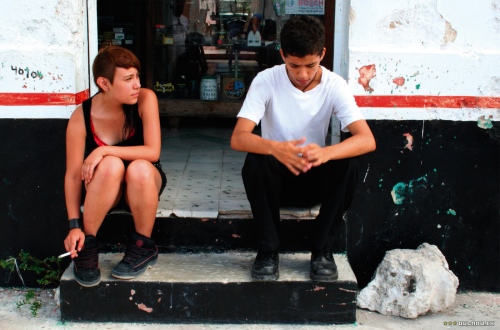

 Reply With Quote
Reply With Quote
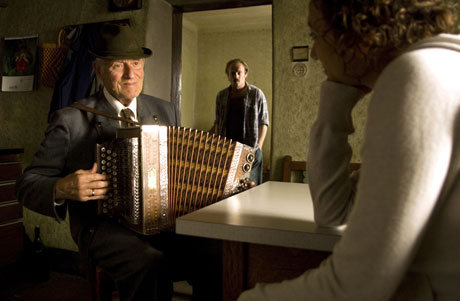
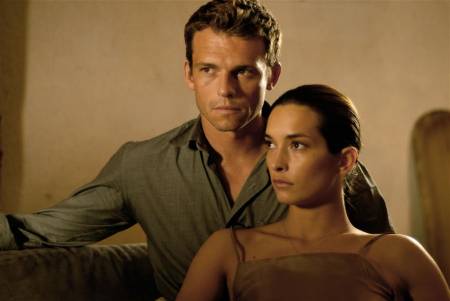

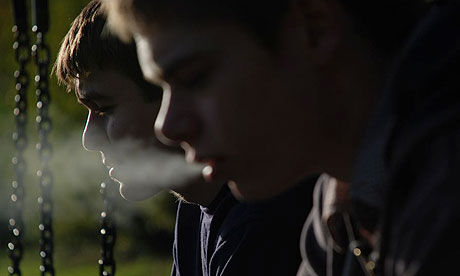


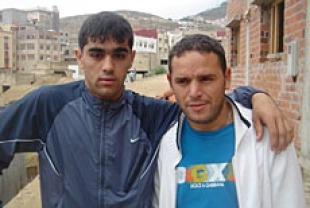

Bookmarks